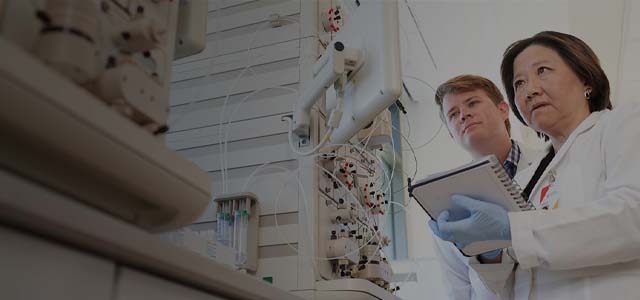Though it sounds like something from the modern era, biotechnology is actually as old as civilization itself. Ever since people began domesticating livestock and breeding crops, various forms of biotechnology, from the primitive to the more advanced, have been in practice.
In more recent times, discoveries in biology—and their applications—have enabled us, not only to analyze the properties of an organism or cell, but also to modify them in the laboratory to create new combinations that nature itself hasn’t yet concocted. This, in turn, has led to better nutrition and healthcare and a deeper understanding of life itself—bringing jobs and value to virtually every industry.
Bioinformatics, in particular, has emerged as one of the most rewarding and rapidly evolving fields within biotechnology. Driven by advances in the fields of molecular biology (particularly DNA cloning, amplification, and sequencing technologies) and computer science (particularly data analytics and computing power), bioinformatics today has applications in healthcare, pharmaceutical development, defense, agriculture, environmental management, forensics, and more.
What is Bioinformatics?
To understand this term, it's important to know what is meant by "informatics," a word that was not widely used prior to the Information Age.
Broadly speaking, informatics is the science of information—how it's generated, processed, used, stored, and disseminated. Primarily associated with computer technology, informatics applies to all kinds of computational systems, both natural and engineered, and is commonly used to describe a data-centric approach to problem-solving.
Bioinformatics, as the name suggests, combines the science of biology with the disciplines of computer science, statistics, and information technology to explore the information contained within our biological systems and macro-molecular structures, such as proteins, DNA, and RNA, and to understand how they affect human health and the planet in general.
What Can I Do with a Master’s in Biotechnology: Bioinformatics?
Bioinformatics is a relatively new field within biotechnology. Research conducted in recent years in areas such as DNA sequencing, gene expression, and protein structures have yielded vast amounts of biological data. Analyzing, managing, and interpreting these large datasets requires the skills of trained professionals.
Careers in this field include
- Bioinformatics Developer: A bioinformatics developer uses computational tools to analyze, manage, and interpret data sets. In addition, they can create python, bash, and R scripts and tools to aid in their analyses. Average salary is about $97,000 per year.1
- Biostatistician: Biostatisticians analyze genetic data and disease rates to design clinical trials for evaluating new pharmaceuticals and for studying the effects harmful of chemicals on populations exposed to them. Salaries average about $130,00 per year.2
- Bioinformatician: These professionals apply computer technology to the study of genetics, particularly the management, processing, and analysis of genomic data. The average annual salary for a bioinformatician is about $133,000.1
- Bioinformatics Scientist: Along with applying computational tools to analyze, manage, and interpret datasets, bioinformatics scientists collaborate with researchers in designing experiments to help answer biological questions. Average annual salary is about $142,000.1
Study Bioinformatics at UMGC
The online Master of Science in biotechnology with a bioinformatics specialization from University of Maryland Global Campus is designed to prepare you for a career in the field of bioinformatics. It’s one of our four graduate biotechnology program offerings. Like most programs at UMGC, the master’s in bioinformatics can be completed entirely online. Select hybrid courses are also available.
The core curriculum focuses on the issues, techniques, and business of biotechnology and the science of bioinformatics. You can gain hands-on experience as you learn to use databases, biostatistics, and algorithms in conducting research on DNA, RNA, and protein sequences. You can also learn to write computer scripts using Python and Java to automate complex tasks and analyze biological data.
The curriculum is continually updated and designed with input from leading biotech employers and industry experts. Your courses are taught by our faculty of highly successful and experienced scholar-practitioners who are leaders in their fields.
“Our bioinformatics courses at UMGC have been designed to teach students the skills they need to succeed in their careers, from their first job post-graduation and onward,” said Wolfgang Rumpf, PhD, professor of bioinformatics at UMGC. “Everything is practical and up to date, from the readings to the homework. The classes guide the learner through the exact kinds of approaches and analyses that I used at a high-profile research institute—and are still in use today.”
Like other select graduate programs at UMGC, the master’s program in bioinformatics has received a special designation as a Professional Science Master’s Degree program through the Council of Graduate Schools. That means you can pursue advanced training in science or math while you simultaneously develop business skills that are highly valued by top employers.
Nichole C., who graduated from UMGC in 2022 with an MS in biotechnology with a specialization in bioinformatics, describes how the skills she gained in the graduate program have helped her succeed in the field.
"Experiences gained in the capstone at UMGC helped with my doctoral admission, as the interviewing faculty were impressed with the level of my knowledge on the project," said Nichole. "Of the many skills I learned in my bioinformatics program, the ability to capture and analyze relationships and trends within various types of data has proven essential to my success as a doctoral student and professional. Such skills are a prerequisite for conducting research in academia and the professional world, and to living a more insightful and fulfilling life overall."
UMGC accepts up to 12 transfer credits toward a graduate degree from an approved institution, so you can fast-track your master's program and earn the degree you need to propel your career to new heights.
To support you throughout your academic journey, you’ll partner with a dedicated UMGC success coach who can assist with class selection and help you map out your education and career goals. And wherever you are in your career, you'll always have access to UMGC’s lifetime career services to help you in your job search and career development.
If you enjoy working with computers, are adept at analyzing data, and have an interest in the science of living things, a career in bioinformatics could be a good fit for you. An MS in bioinformatics from UMGC can put you on the right path.
1 Glassdoor. October 29, 2023
2 Indeed.com. November 12, 2023
Reference on this webpage to any third-party entity or product does not constitute or imply endorsement by UMGC nor does it constitute or imply endorsement of UMGC by the third party.



/blog-umgc-transfers-credits-linklist-shutterstock_1181852596.jpg)

